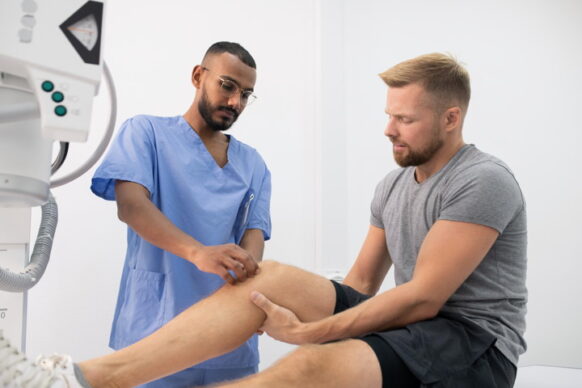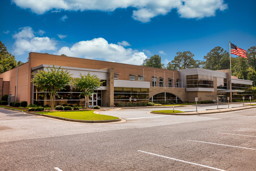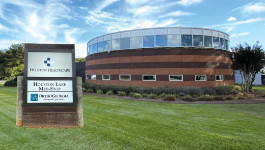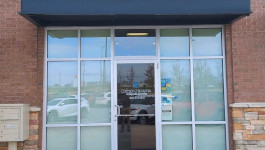Low Back Pain in the Workplace – Dr. William Dasher

Low back pain is a very common problem in the population as a whole and especially in the workplace. Evaluating the patient with low back pain can be difficult, especially in the setting of a workers’ compensation injury.
Evaluating a Workplace Back Injury
The initial evaluation should include a detailed history of the injury, a comprehensive physical examination, and a review of radiographic studies (if indicated or provided). Most importantly, one must rule out serious pathology, including fractures and/or spinal cord or nerve root dysfunction. In addition to these injury-related problems, consideration must also be given to the possibility of tumor or infection. Usually, a good history and physical exam will allow the physician to quickly determine the severity of the problem.
When performing a physical exam on a patient with low back pain from a work-related injury, the use of Waddell “non-organic” signs can potentially help determine the likelihood of response to treatment. They must be used with caution: however, several authors have suggested that these findings may not be as helpful as once thought.
What are the Waddell Signs?
The Waddell signs include:
- Superficial tenderness: the patient’s skin over a wide area of the lumbar spine is tender to light touch or pinch.
- Non-anatomical tenderness: the patient experiences deep tenderness over a wide area that is not localized to one structure and crosses over non-anatomical boundaries.
- Axial loading: downward pressure on the top of the patient’s head elicits lumbar pain.
- Torso rotation: lumbar pain is elicited while the provider passively and simultaneously externally rotates the patient’s shoulder and pelvis together in the same plane as the patient stands. It is considered a positive test if pain occurs within the first 30 degrees of rotation.
- Distracted straight leg raise discrepancy: the patient complains of pain during a straight leg raise during formal testing, such as when supine, but does not complain on distraction when the examiner extends the knee with the patient in a seated position.
- Regional sensory disturbance: the patient experiences decreased sensation fitting a stocking-like distribution rather than a dermatomal pattern.
- Regional weakness: weakness, cogwheeling, or giving way of many muscle groups that are not explained on a neuroanatomical basis.
- Overreaction: a disproportionate and exaggerated painful response to a stimulus that is not produced when the same provocation is given later. These responses can include verbalization, facial expression, muscle tension, or tremor.
The number of Waddell signs that are positive should be noted, as three or more has been shown to be more predictive.
Diagnostic Imaging for Low Back Pain
Once the H&P are completed, imaging studies are often ordered/reviewed. X-rays, CT, and MRI are often utilized depending on the injury, physical exam findings, and/or response to treatment. MRI must be interpreted with caution; however, because there is a high incidence of pathology found in asymptomatic patients. Numerous studies have shown that findings of disc bulges, disc protrusions, facet arthritis, and stenosis are often seen in patients with no history of back pain. However, disc extrusions are not typically seen in asymptomatic patients. The patient’s complaints, exam findings, and imaging studies must be interpreted together in order to be useful.
Treatment for Low Back Pain and Return to the Workplace
The large majority of patients presenting with low back pain can be treated non-operatively with time, physical therapy, chiropractics, heat/ice, NSAIDs, etc. Multiple studies have shown that a brief period of rest (1-2 days), followed by a quick return to normal activities will result in the best outcomes. More invasive treatments including epidural steroid injections and facet injections can be considered for patients who have not responded to lesser treatments. Ultimately, in very select cases where the pathology is clear and the patient is reasonable, surgery can be considered. The outcomes of surgery in the workers’ compensation population have clearly been shown to be inferior to the outcomes in non-WC patients; however, it can be a very useful tool in the right patient with the appropriate pathology. Surgery usually involves decompressing neural structures (laminectomy, foraminotomy, discectomy), with the possibility of fusion and/or disc replacement. These can be done through a myriad of techniques, both open and minimally invasive.
While low back pain can be a challenge to treat in this population, it is one of the most significant causes of lost work time and expense. It should be evaluated and treated expeditiously and judiciously.
About Dr. William Dasher
Dr. Dasher is one of our orthopaedic spine specialists at OrthoGeorgia. He is a board-certified, fellowship-trained orthopaedic spine surgeon specializing in the conservative and surgical management of all spine conditions, including scoliosis, spinal stenosis, disc herniation, and more. Dr. Dasher is also trained in the latest minimally invasive robot-assisted techniques for nerve decompression and fusion, which provide numerous benefits for patients seeking spine surgery. Dr. Dasher works with patients at our Macon Spine Center and is board certified by the American Board of Orthopaedic Surgery.
Comprehensive Spine Care and Workers’ Compensation Services in Central GA at OrthoGeorgia
At OrthoGeorgia, those in Central GA have access to a wide range of orthopaedic services, including comprehensive spine care and workers’ compensation services. Our spine specialists are skilled in the diagnosis and treatment of all manner of spine and neck conditions and injuries, from cervical disc disease to low back pain. This area of expertise often overlaps with our specialized workers’ compensation program. We focus on timely access to care, strong communication with the employee and employer, and consistent care every step of the way. We work to help get injured workers back on the job quickly and successfully. To learn more about the orthopaedic care we provide in Macon, Warner Robins, Kathleen, Milledgeville, Dublin, and Hawkinsville or to schedule an appointment at the location nearest you, please contact us today.

Personalized Orthopaedic Care in Central Georgia
At OrthoGeorgia, we want to help you live a healthier and more comfortable life by giving those in Macon, Warner Robins, Kathleen, Milledgeville, Dublin, Hawkinsville, and the surrounding areas convenient access to the highest quality care. Whether you have been suffering from a sports injury or a common orthopaedic condition, we will determine the cause of your discomfort and craft a personalized treatment plan to bring you relief. To learn more about our services and our physicians, or to schedule an appointment at OrthoGeorgia, please contact us today.







